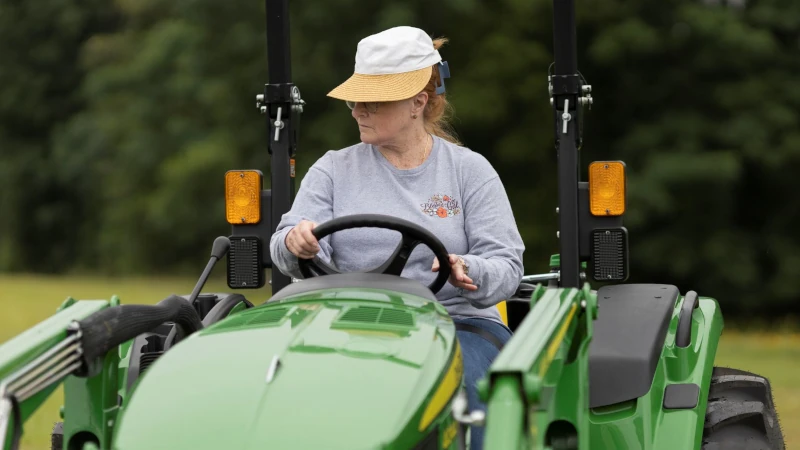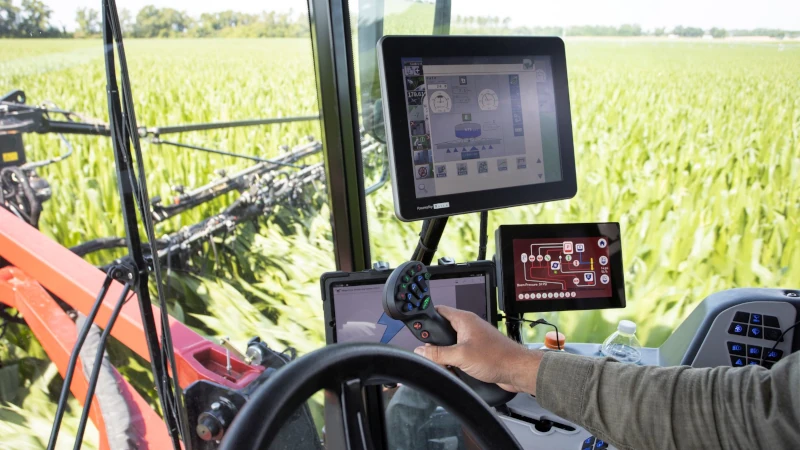From risk to rescue: Life-saving tractor safety videos every farmer needs
Agriculture, forestry and fishing combine to make for the most hazardous industries in the United States, with 23 fatalities per 100,000 full-time workers annually, according to the Bureau of Labor Statistics.
One of the most dangerous tools in farming is the tractor.
As we mark National Farm Safety and Health Week, a new series of videos from the University of Florida Institute of Food and Agricultural Sciences (UF/IFAS) gives practical tips to stay as safe as possible while operating tractors.
“Tractors are one of the most widely used and perilous vehicles on farms,” said Serap Gorucu, a UF/IFAS assistant professor of agricultural and biological engineering. “Many injuries and fatalities occur because of preventable mistakes, outdated practices or a lack of awareness about risks. These videos provide farmers, workers and even the general public with clear information on safe tractor operation and hazard prevention. Many tractor incidents occur during routine, everyday tasks, not under unusual or extreme circumstances.”
Practical steps such as using rollover protection, maintaining equipment and following safe operating procedures and checklists can drastically reduce the risk of injury.

A class participant practices operating a tractor in a tractor safety course. Credit: Tyler Jones, UF/IFAS
“Understanding the environment where the tractor is used is just as important as knowing how to drive the vehicle,” she said. “Terrain, roadway conditions and the presence of people around the machine must always be considered. Safety protects not only the operator but also family members, co-workers and bystanders on the farm.”
Gorucu said the most important lessons from the videos are:
- Never assume common sense is enough. Many hazards are not obvious until something goes wrong.
- Safe operating speed and awareness of slopes, ditches and soft ground reduce rollover risk.
- Keep children and non-operators away from tractors at all times.
Some people have misconceptions about tractors, and one of the major ones is that tractors are safe because they move at lower speeds than cars or trucks, Gorucu said.
“But tractors can overturn in seconds, crush operators, injure bystanders or cause severe harm, even at very low speeds,” she said. “Another misconception is that experience alone guarantees safety. Many seasoned operators are injured when they become too comfortable or overlook small risks.”
Similarly, many people think that relying on a single safety training session is sufficient. It’s not, Gorucu said. Regular refresher training is essential to reinforce key practices and keep safety top of mind for both operators and those around them, she said.
Gorucu said she developed the videos – in collaboration with UF/IFAS video and staff at the Plant Science Research and Education Center in Citra and the North Florida Research and Education Center in Quincy – because most tractor safety materials do not apply to Florida farmers.
“While those resources are valuable, they don’t always reflect the working environments common in southern agriculture,” she said. “We wanted to create training videos with visuals that farmers in our region can directly relate to, making the safety messages more relevant, practical and impactful.”
“Sharing these videos also helps foster a culture of safety within the community,” Gorucu said. “The key points highlighted in the series serve as important reminders, but one-time training is not enough. Regular refresher sessions are essential to ensure that everyone stays informed and aligned on safety practices.”
The post From risk to rescue: Life-saving tractor safety videos every farmer needs, written by Brad Buck, first appeared in the University of Florida Institute of Food and Agricultural Sciences News Blog.
About UF/IFAS
The mission of the University of Florida Institute of Food and Agricultural Sciences (UF/IFAS) is to develop knowledge relevant to agricultural, human and natural resources and to make that knowledge available to sustain and enhance the quality of human life. With more than a dozen research facilities, 67 county Extension offices, and award-winning students and faculty in the UF College of Agricultural and Life Sciences, UF/IFAS brings science-based solutions to the state’s agricultural and natural resources industries, and all Florida residents.




